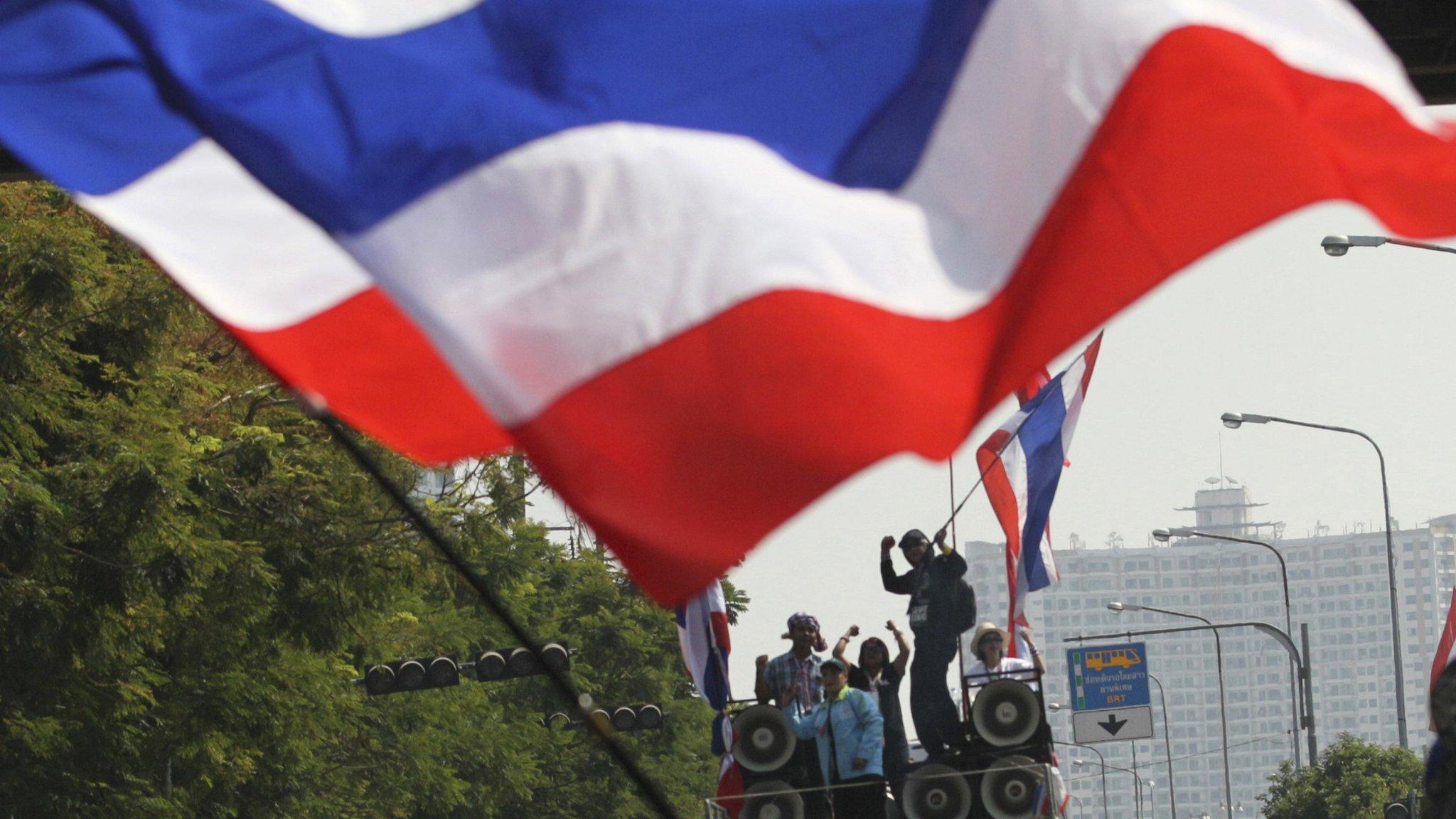Thailand election: Several hurt in Bangkok gun battle
- Published
Eyewitness Nick Nostitz: "There were moments when I thought I'm not going to survive it"
At least six people have been injured in gun battles in Bangkok between government opponents and supporters, a day before Thailand's general election.
Journalists and members of the public raced for cover as protesters with handguns and rifles traded fire.
The demonstrators, who want Prime Minister Yingluck Shinawatra to quit, were trying to blockade a building where ballot papers are being stored.
The main opposition Democrat Party is not standing in the election.
The Democrats, allied to the protesters, have been unable to win an electoral majority for two decades.
They want the government to be replaced by an unelected "people's council", which would oversee wide reform of the political system.
Demonstrators accuse the prime minister of being under the control of her brother, ousted former leader Thaksin Shinawatra, who lives in self-imposed exile.
Troops deployed
Saturday's shooting incident took place in Bangkok's Laksi district, a stronghold of the prime minister's Pheu Thai party.
Sustained bursts of gunfire ricocheted off buildings after a tense stand-off between both sides, the BBC's Jonathan Head, in Bangkok, reports.
There was no word on who was responsible. It was also unclear whether those struck were government supporters or opponents.
One man is reported to be in a serious condition after being shot in the neck.
The Electoral Commission said voting would be called off in Laksi because officials had been unable to get past the protesters to collect the ballot papers.
Anti-government activists want the political system to be reformed
The opposition movement - whose supporters are known as "yellow shirts" - has vowed to disrupt the election as much as possible, by preventing ballot papers from reaching polling stations.
They are expected to be able to seriously disrupt voting in the south and in Bangkok, areas of which are strongholds of the opposition.
In pro-government areas in the north and east, voters are likely to be able to vote without problems.
Meanwhile pro-government groups - or "red shirts" - have been ordered to monitor the poll, but not confront the protesters, for fear that violence would jeopardise the election.
The army earlier said it would increase the number of troops deployed in Bangkok for the polls on Sunday. Some 10,000 police will also patrol the streets.
Abuse of power
The protests began in November, after the lower house backed a controversial amnesty bill that critics said would allow Ms Yingluck's brother to return.
Thaksin Shinawatra was ousted in a military coup in September 2006, accused of corruption and abuse of power.
He faces a two-year jail sentence if he returns to Thailand, after being convicted in absentia on a conflict-of-interest charge.
Ms Yingluck called early elections to quell the unrest, but demonstrators have vowed to block the poll from going ahead.
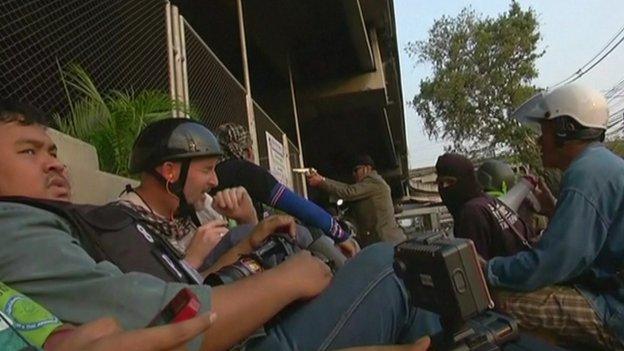
Journalists and passers-by sought cover while shots were being fired in Laksi district, a government stronghold
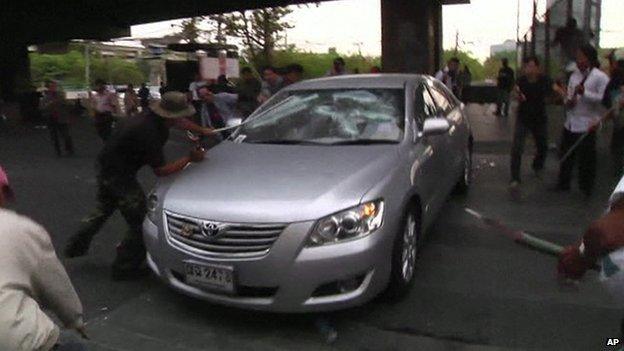
Before the exchange of fire, demonstrators were filmed attacking a car
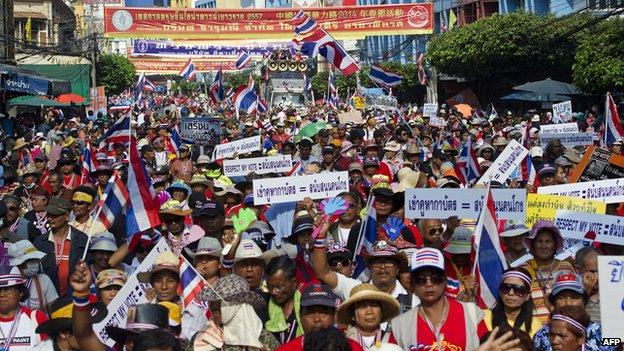
Protesters have vowed to disrupt the election on Sunday as much as possible
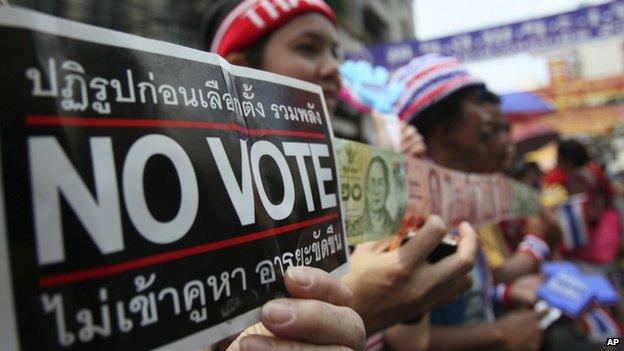
Anti-government groups have been blockading buildings where ballot papers are being held
Correspondents say one election commissioner has predicted that 10% of polling stations will not be able to open at all on Sunday.
Because of disruption to candidate registration, the elections will also not deliver enough MPs for a quorum in parliament, meaning that by-elections will be needed before a government can be approved, extending the instability.
Last week, there were chaotic scenes as protesters tried to stop advance voters from casting their ballots.
- Published1 February 2014
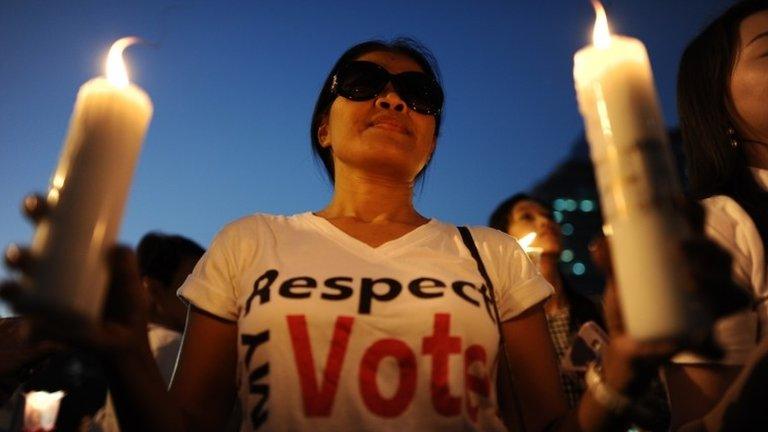
- Published22 May 2014
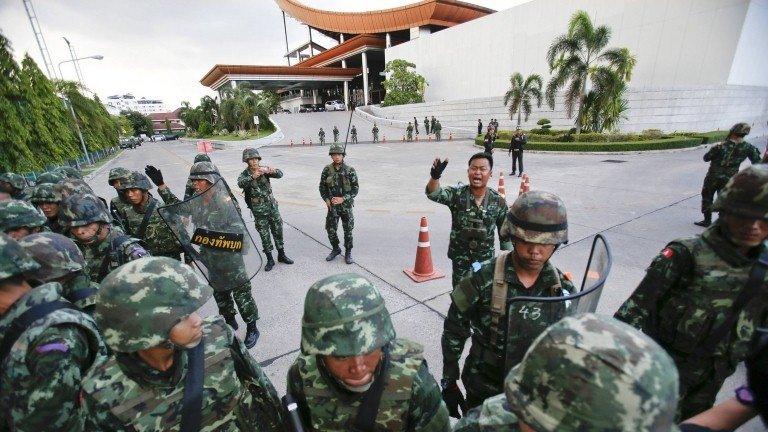
- Published23 August 2017
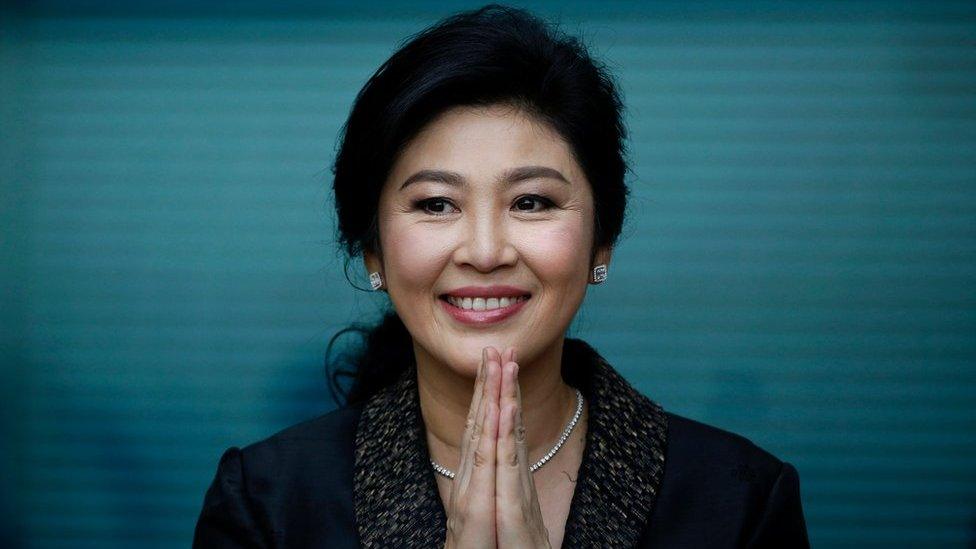
- Published26 January 2014
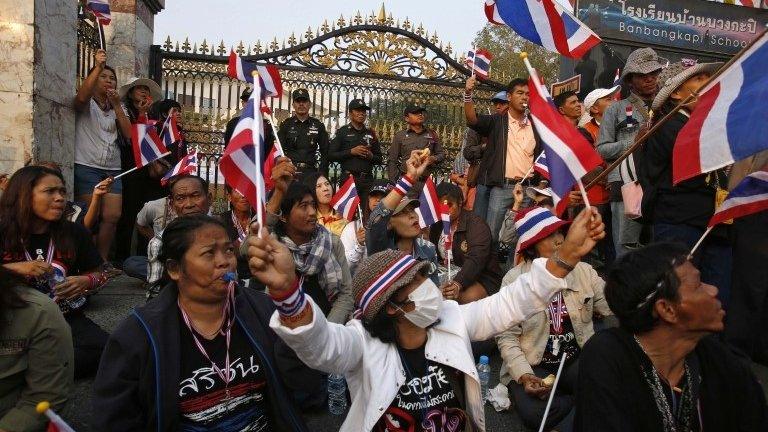
- Published22 January 2014
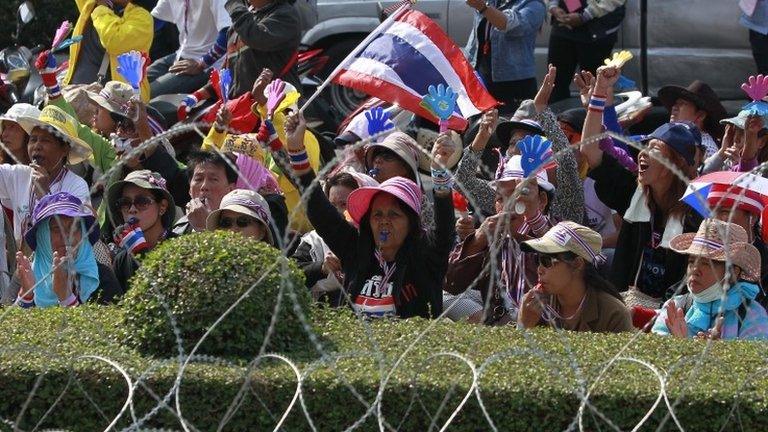
- Published21 January 2014
